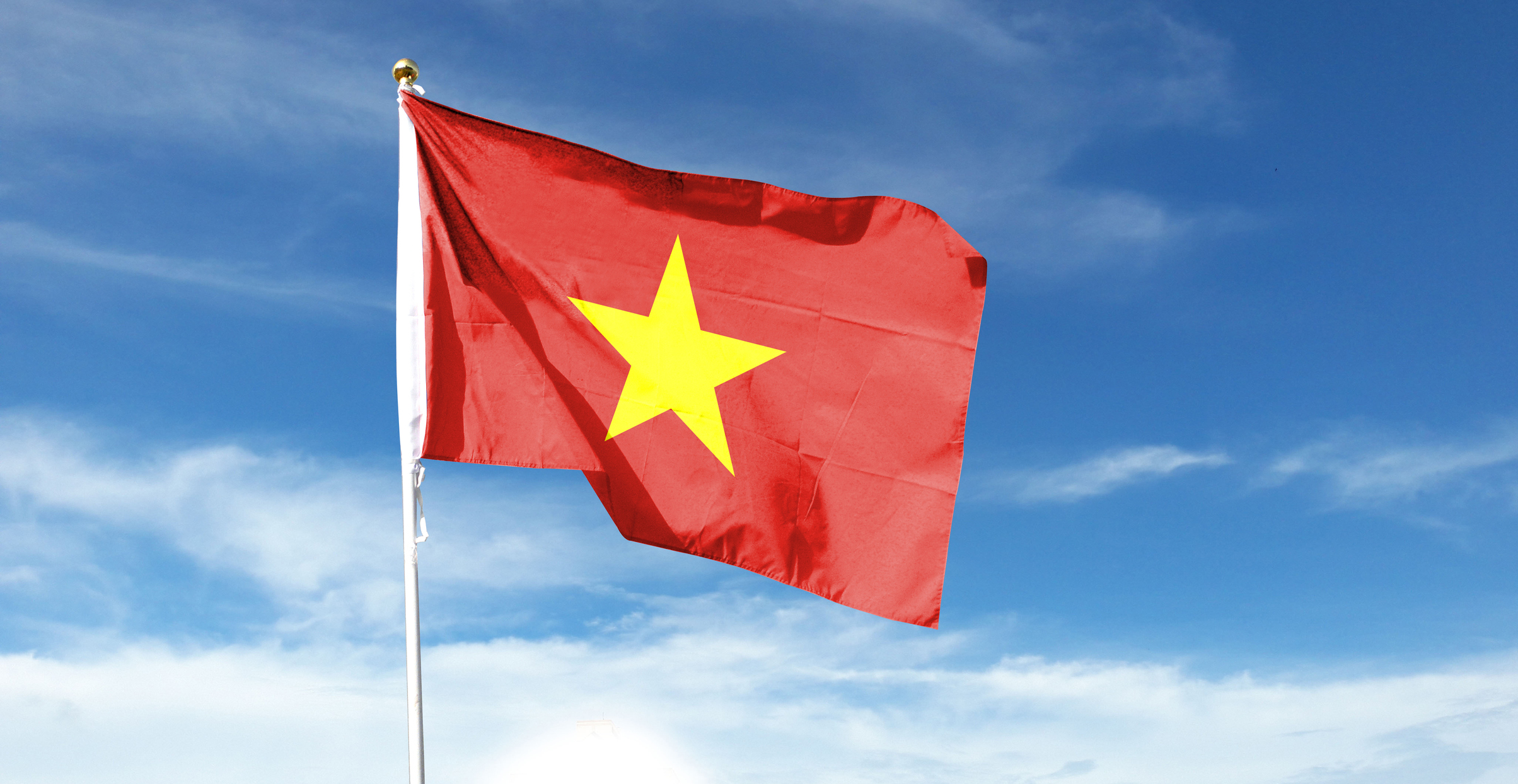
Experiencing Vietnam
Todd Lindenmuth, the director of brand management at Higher Rock Education, recently participated in an immersive cultural experience in Vietnam and Singapore as part of his graduate studies at the University of Louisville. This blog shares his insights into Vietnamese businesses and the variety of cultural differences he observed.
While I have been blessed to experience various cultures outside of the United States, I have never done so in an educational setting. As I look back on my time as an undergraduate at Penn State, I often find myself wishing that I had taken the opportunity to study abroad. I am a believer that various experiences and cultures can help us grow as individuals. I specifically chose to travel to Vietnam and Singapore because I have always wanted to travel to Southeast Asia. I wanted to take advantage of the unique opportunity that was presented through my graduate program at the University of Louisville.
CULTURAL OBSERVATIONS IN VIETNAM
Even while making tremendous strides in recent years, Vietnam remains an undeveloped country. This marked the first time that I, personally, had been in an undeveloped country, so it was interesting to compare the culture compared to what I am used to living in the United States.
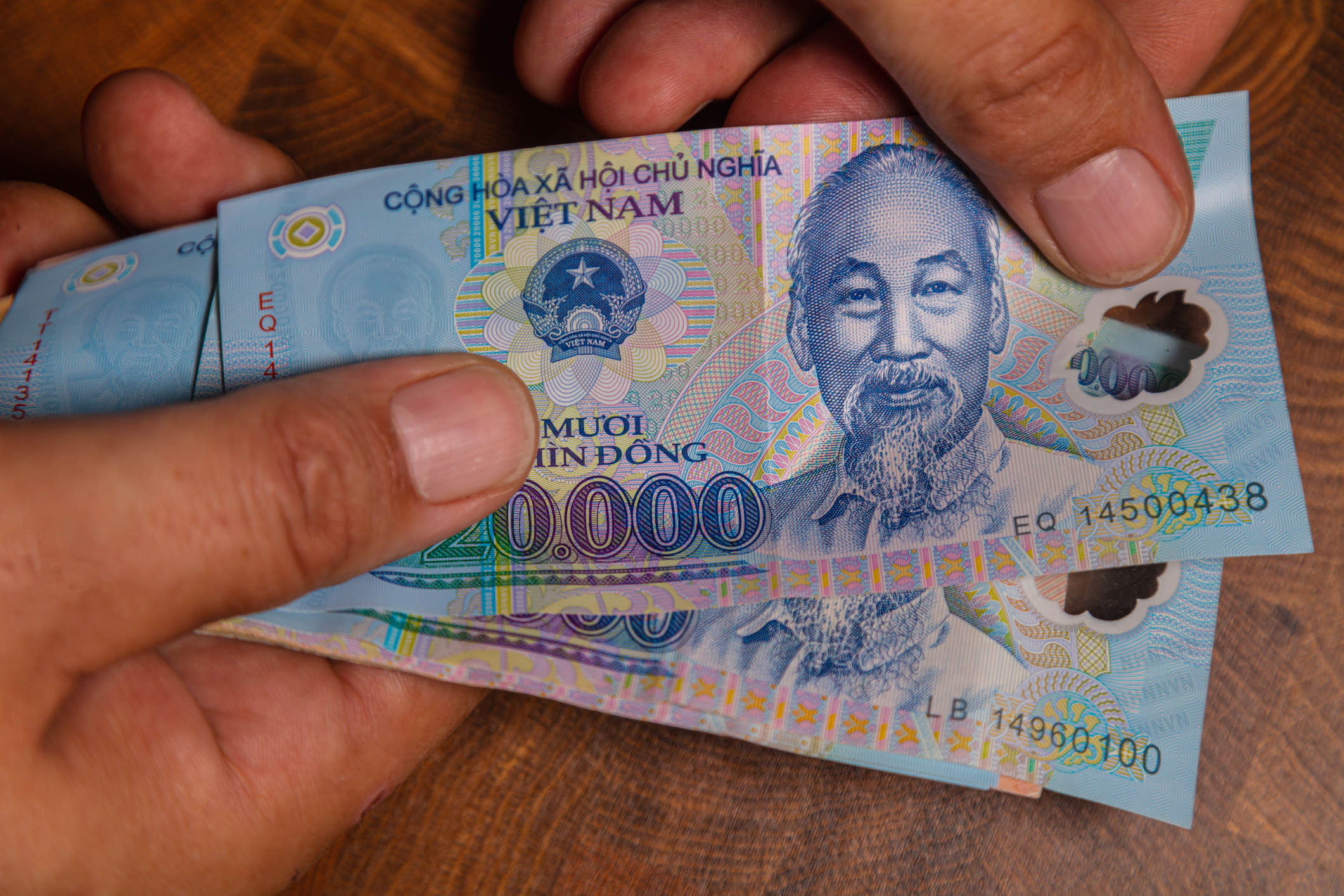 Image from iStock
Image from iStockVietnam is a communist country. It is one of five communist countries in the world, along with China, Cuba, Laos and North Korea. Our group’s guide, Michael Duyen, mentioned that the government controls prices for key commodities such as rice, public transportation system, as well as gas and petrol prices. Prices are maintained at levels that everybody can afford.
The official currency of Vietnam is the Vietnamese dong. One US dollar equals roughly 24,000 Vietnamese dong. Even while having a basic understanding of Vietnamese prices before I visited, it was still shocking to experience how inexpensive things were firsthand – especially in a city of nearly 10 million people like Ho Chi Minh City. Food prices for a bowl of pho – a popular noodle soup – or a banh mi cost less than $3 USD. Grab rides – a ride-sharing service that is similar to Uber in the United States – cost less than $2 USD to go across town. I would be curious if we were still paying a premium while staying in the heart of Ho Chi Minh City and comparing prices to those in other parts of the country, including more rural areas. Another difference was their society’s dependence on cash transactions, rather than credit cards. Restaurants, coffee shops, markets, and tourism destinations often would only accept cash to complete transactions.
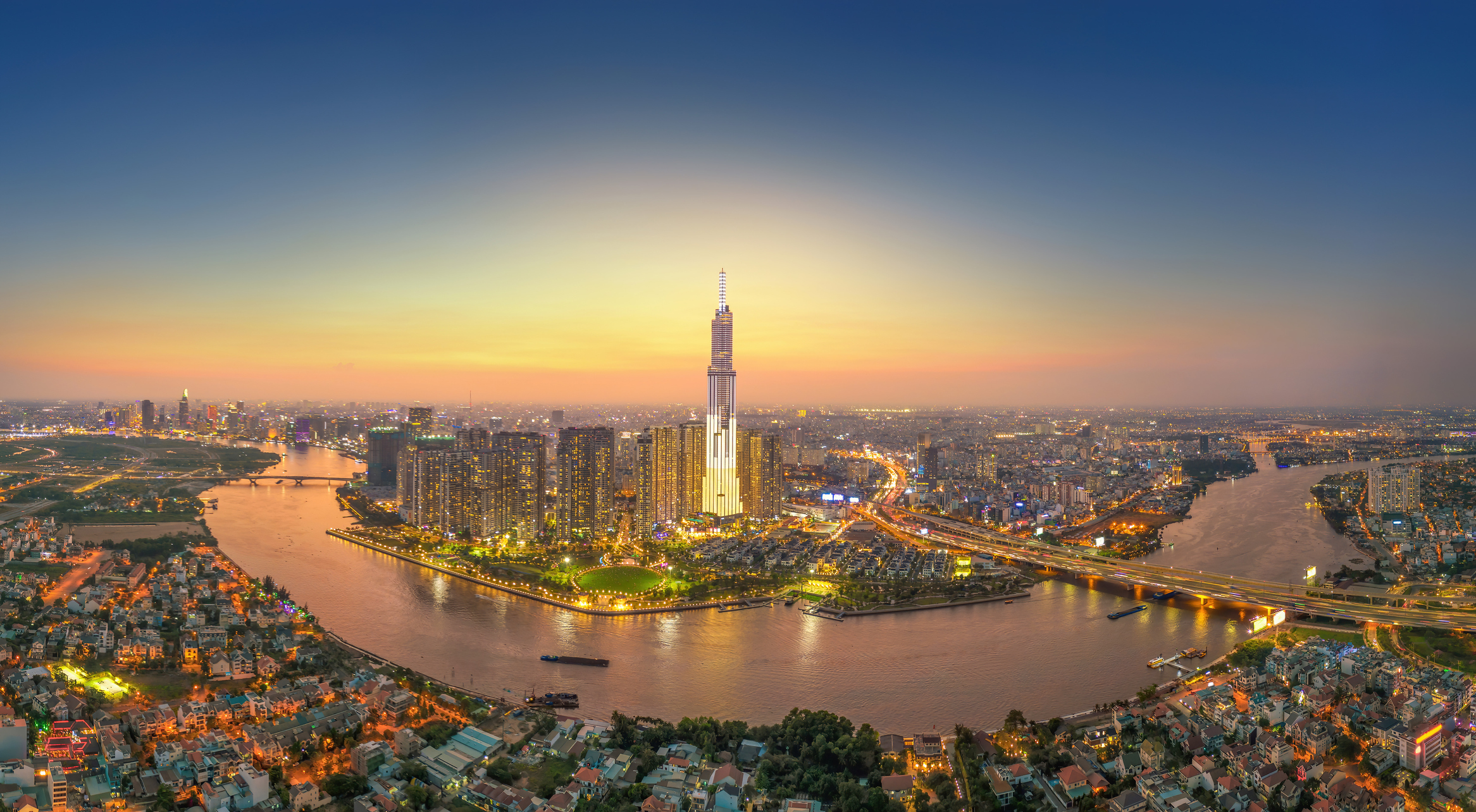 Image from iStock
Image from iStockThe lack of efficient mass transportation in a city the size of Ho Chi Minh City was clear. This was evidenced by the long bus rides that our group took, the traffic that we encountered along the way to our business visits, and the thousands of motorbikes scurrying throughout the city streets. The primary mode of transportation for the Vietnamese population is motorbikes where there are roughly 7.3 million motorbikes for the population of 9.3 million Ho Chi Minh City residents.
Another surprising element of Vietnam that isn’t well known is the abundant coffee culture. Few realize that it is the second-largest coffee producer in the world. The country specializes in robusta coffee, which is known for its intense and bold flavors but with fewer fats and sugars than the more popular arabica coffee. Vietnam has grown from supplying 0.5 percent of the world’s coffee in the mid-1980s to more than 18 percent in 2020. However, the Vietnamese government has historically controlled coffee prices, providing little incentive to improve the quality of coffee, and that has led to the robusta coffee earning its reputation as the inferior coffee bean. The Vietnamese in the southern regions prefer to drink their coffee as a cold drink with milk. Another popular way the Vietnamese drink their coffee, especially in the northern regions, is with egg yolks, sugar, and condensed milk. This is known as egg coffee, and while I didn’t have the opportunity to try it, it is said to taste like a strong tiramisu.
Vietnam’s primary religion is Buddhism, with more than half of the country identifying as Buddhist. The importance of religious customs was made apparent during one of our group’s business visits to the Hung Phat Tea Company where the workers practice meditation before work to prepare for the day and to relieve stress.
BUSINESS VISITS
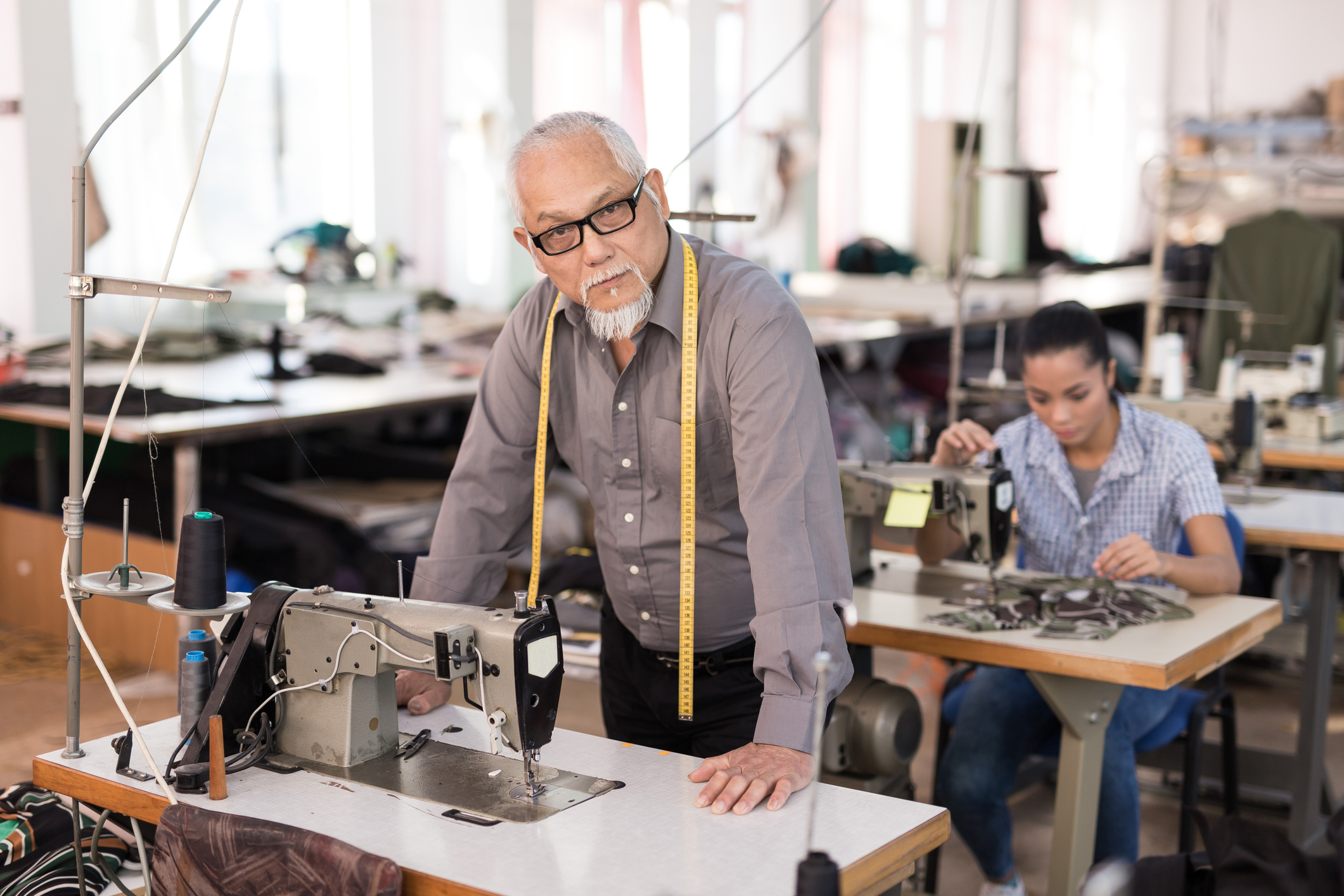 Image from iStockAs part of the cultural experience, our group took part in five business visits in Vietnam to a wide range of companies across several of the most important industries in Vietnam, including technology, health care, manufacturing, tea production, and energy and sustainability
Image from iStockAs part of the cultural experience, our group took part in five business visits in Vietnam to a wide range of companies across several of the most important industries in Vietnam, including technology, health care, manufacturing, tea production, and energy and sustainabilityThe first business visit of the trip took us to FPT Software, which is a digital software company. The first thing that stood out about FPT Software was the modernized buildings. One of the more impressive features was the elaborate company amenities, such as a cafeteria, game room, massage chairs, and company bar. The company uses the elaborate amenities as an incentive for their top 10 percent of performers – regardless of their role in the company -- using positive reinforcement rather than negative reinforcement which is sometimes used in layoff decisions at US-based software companies. I came away impressed with how the company values education and how it uniquely goes about training future employees with its private university. A large percentage of FPT’s employees graduate from their university, where the company offers internship opportunities to exceptional students that can eventually lead to full-time employment. Another added benefit of this setup is that the investment in the students has led to high company retention rates.
The second visit that our group made was to Dr. Rafi Kot’s Family Medical Practice. Dr. Kot is an Israeli doctor who built his family practice from the ground-up and developed Ho Chi Minh City’s emergency response system *9999 for citizens while training the call center staff. He described some of Vietnam’s issues in the medical field. For example, many citizens view their health with a certain carelessness that they view as karma if they become sick. Meanwhile, others in the country view medical attention as a practice that is exclusive to the wealthy. Vietnam is faced with many challenges not faced in America when it comes to health care, due to its lack of talent, lack of education, and lack of language.
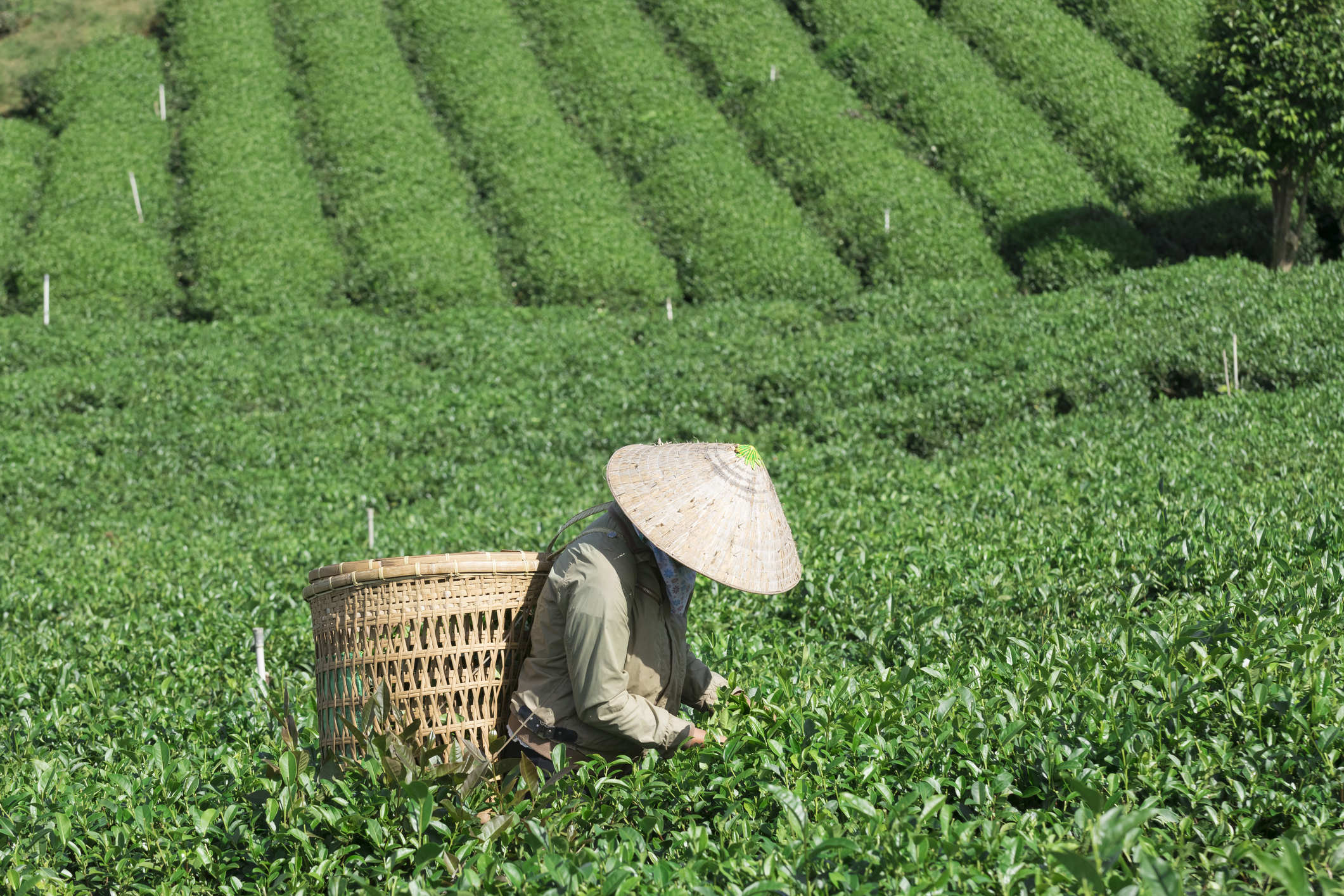 Image from iStock
Image from iStockOur group visited the Vietnamese Shoe Majestic Company for our third visit where we about the process of making high-quality shoes. The day we visited, the team members were making UGG slippers, but the facility also makes shoes for Johnston & Murphy and Dr. Martens. This was my personal favorite visit of the trip, as it was my first time in a manufacturing facility, and I was intrigued by the arduous process that each pair of shoes goes through. I was also interested in how much of the production line was done by hand, compared to America where more and more of our manufacturing jobs are becoming automated to maximize efficiency.
Next, we traveled to the Hung Phat Tea Company where we learned how they became the largest Vietnamese Tea manufacturer in the country. The company was founded in 1988 and is a leading brand in the herbal tea industry. The company distributes products throughout the world, including in the United States. It was with this company that we learned about the importance of meditation in Vietnamese culture prior to the workday and participated in a traditional tea meditation ceremony.
Our final visit to Vietnam took our group to a green energy and sustainability company called GreenViet. They design sustainable buildings around the world. The company is known for integrating horticulture as part of its building facades.
SUMMARY
Visiting Vietnam was eye-opening in many regards. As an American, I had not visited a country so vastly different than my own. From a cultural perspective and business perspective, their practices differ widely from those commonly found in the United States or other advanced economies. I believe we can learn several things from Vietnamese business practices.
First, is the value of education and positive reinforcement that our group learned about at FPT Software. The company reaps the benefits of its investment in its privately owned university by developing high-quality employees and boasting high retention rates. In addition to that element, the company provides additional perks with its elaborate company amenities as a motivation for its top-performing members.
I also saw firsthand how the Vietnamese value respect in business dealings. The Vietnamese make great efforts to treat each other with respect and avoid undermining or criticizing them. Another aspect of respect was shown with a gift exchange at the end of each of our visits, which is a customary behavior in Vietnam and other Asian cultures at the end of a business meeting.